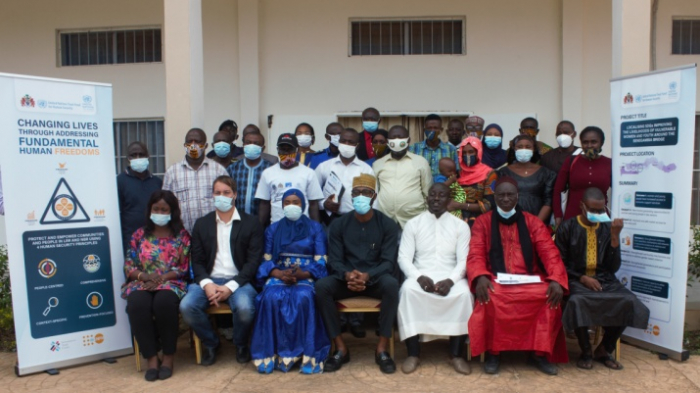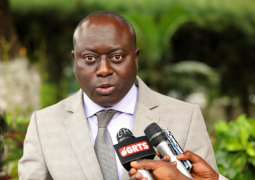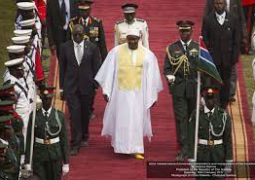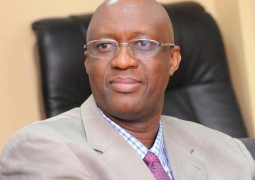
The project was developed by the Gambia Association of Local Government Authorities (GALGA) and the National Youth Council (NYC) of The Gambia and other partners, including Ministry of Finance and Economic Affairs, Women’s Bureau, as part of celebrations marking UN’s 75 years that coincides with the development of the UN Common Country Assessment (CCA) and Trust Fund for Human Security in The Gambia.
The current United Nations Development Assistance Framework (UNDAF) will end in 2021 with the subsequent transitioning of the UN system in The Gambia to the next generation of UN Sustainable Development Cooperation Framework (CF).
“This project seeks to address the negative livelihood challenges that vulnerable women and youth encounter as a result of the coming of the Senegambia Bridge,” Kunle Adeniyi, representative of UNFPA in The Gambia said in his launch statement.
He said the project is a two-year pilot one and it is the first time the UNTFHS is supporting a project in The Gambia, saying through the project; UN aims to strengthen literacy and a stronger human security.
Mr Adeniyi said the project also seeks to address issues at local government level, saying the UN counts on the continued partnership in the implementation of the project.
A key element of the CCA is stakeholder engagement whilst the consultations on the UNTFHS is to ensure that the targeted interventions are context specific and address the needs and aspirations of the targeted beneficiaries in the Kerewan (NBR) and Mansakonko (LRR) local government areas.
The aim of the Community Consultations, which was conducted last year is to engage in the UN75 dialogue; collect their feedback/recommendation on the two human trust fund proposals for localising SDGs - improving the livelihoods of vulnerable women and youth around the Senegambia Bridge; and for the CCA to undertake feasible gender and conflictsensitive community consultations amidst the COVID-19 pandemic and ensure an inclusive lens in the analysis, especially where data is inadequate.
Landing B. Sanneh, president of GALGA and chairman of Mansakonko Area Council said the livelihoods of many women and youth have been negatively affected by the completion of the Senegambia Bridge which brings the need for the project.
He said the overall impact will be building the resilience of the targeted beneficiaries to vulnerabilities and accelerate progress on achieving multiple SDGs including SDGs 1, 2, 3, 4, 5, 6, 8, 10, 11, 12, 13 and 16.
Raymond Moser, project manager of the European Union funded Youth Empowerment Project (YEP) said the human trust fund is an important and a transformative project that seeks to improve the livelihoods of the targeted beneficiaries. “This is the first time the UNTFHS is supporting The Gambia. It has been a joint process that led us to today,” he said.
The project will focus on following strengthening local governance structures to enhance participation, ownership and sustainability of development and restoring livelihoods and enhancing self-reliance mechanisms and restore livelihoods and enhancing opportunities for self-reliance, focusing on activities that diversify income of women and youth and improve their household, health and nutrition status.
Deputy executive director of National Youth Council, Pa Malick Ceesay and Yaya Jarjusey, chief of Jarra West both commended the UN for supporting the project.
Mr Ceesay said young people have a lead role to play in the implementation of the project in the two targeted local government areas that is expected to improve their livelihoods. He expressed Gambian young peoples’ readiness to support the development process of the country and the successful implementation of the project.
By Amadou Jallow
Programmes & Communications Officer, GALGA




